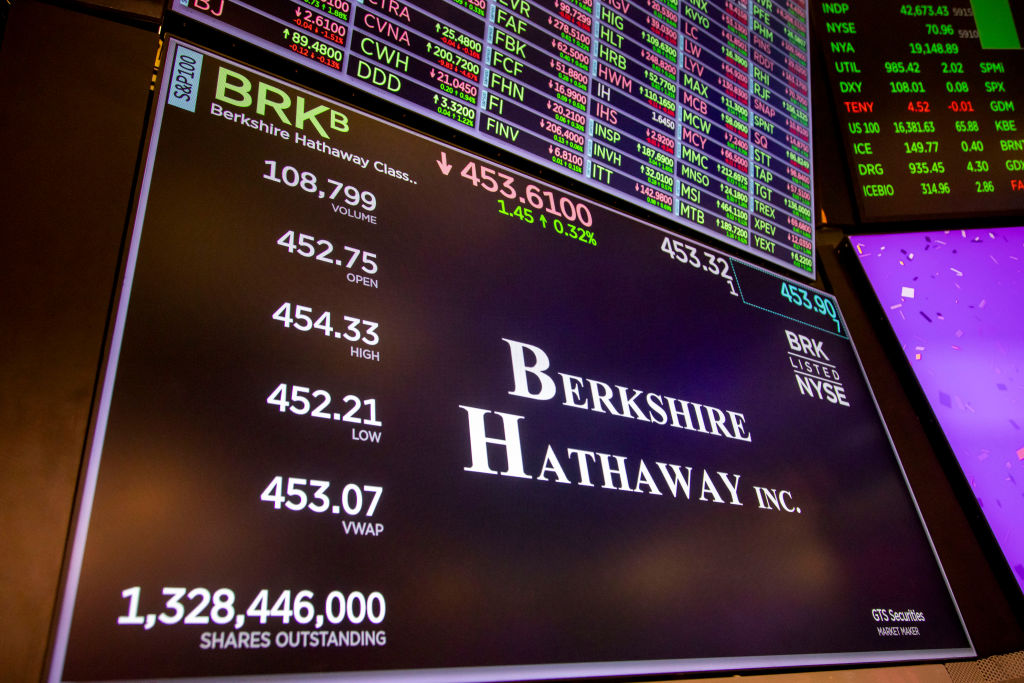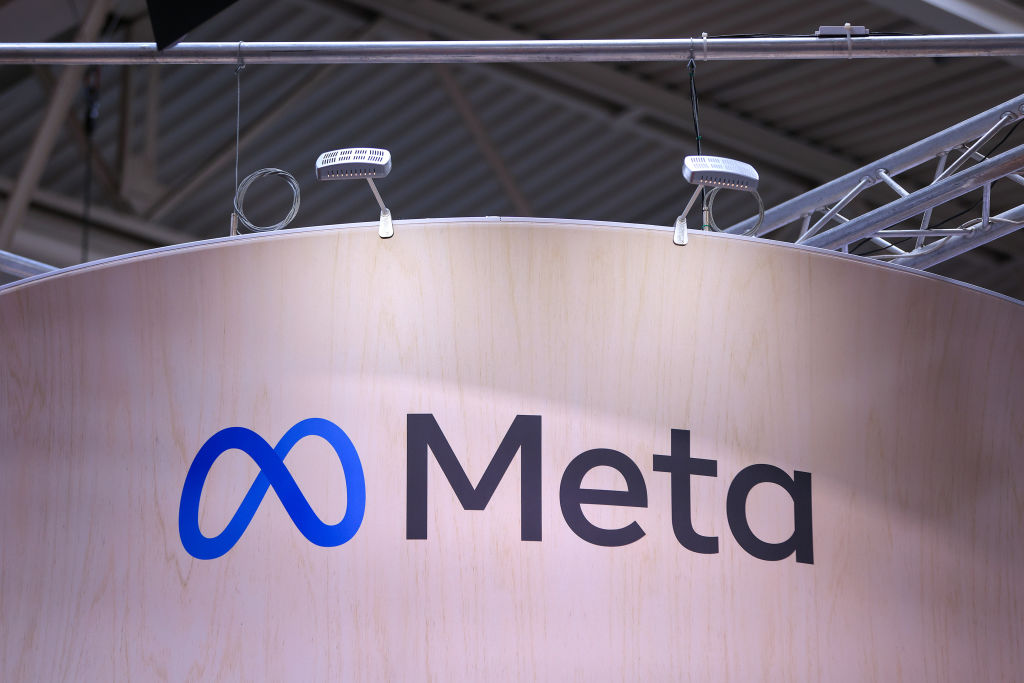Best Cash Cows to Buy
These cash cows and their bulletproof balance sheets are built to weather Wall Street's and Main Street's prevailing storms.


Profit and prosper with the best of Kiplinger's advice on investing, taxes, retirement, personal finance and much more. Delivered daily. Enter your email in the box and click Sign Me Up.
You are now subscribed
Your newsletter sign-up was successful
Want to add more newsletters?

Delivered daily
Kiplinger Today
Profit and prosper with the best of Kiplinger's advice on investing, taxes, retirement, personal finance and much more delivered daily. Smart money moves start here.

Sent five days a week
Kiplinger A Step Ahead
Get practical help to make better financial decisions in your everyday life, from spending to savings on top deals.

Delivered daily
Kiplinger Closing Bell
Get today's biggest financial and investing headlines delivered to your inbox every day the U.S. stock market is open.

Sent twice a week
Kiplinger Adviser Intel
Financial pros across the country share best practices and fresh tactics to preserve and grow your wealth.

Delivered weekly
Kiplinger Tax Tips
Trim your federal and state tax bills with practical tax-planning and tax-cutting strategies.

Sent twice a week
Kiplinger Retirement Tips
Your twice-a-week guide to planning and enjoying a financially secure and richly rewarding retirement

Sent bimonthly.
Kiplinger Adviser Angle
Insights for advisers, wealth managers and other financial professionals.

Sent twice a week
Kiplinger Investing Weekly
Your twice-a-week roundup of promising stocks, funds, companies and industries you should consider, ones you should avoid, and why.

Sent weekly for six weeks
Kiplinger Invest for Retirement
Your step-by-step six-part series on how to invest for retirement, from devising a successful strategy to exactly which investments to choose.
There are many ways to measure stability on Wall Street. For you and me and other individual investors, it's a basic question of identifying the best cash cows to buy.
Some market participants prioritize metrics such as the value of a company versus its underlying assets to make sure they're not overpaying for shares. Others seek steady operating cash flow: money comes in steadily and substantially, fueling growth and sustaining a solid business footing.
But value stocks can sometimes be value traps. Cheap stocks are often cheap for good reasons. Often, they do get cheaper.
At the end of the day, there really is only one measure of how stable a stock is: cold, hard cash on the balance sheet. That's the best indicator of a high-quality business and a solid stock to buy for the long term.
High-quality cash cows
"The global economy is poised to accelerate in 2026," write UBS Global Research strategists in their 2026-2027 markets outlook. "Business and consumer confidence has improved, the global credit impulse has turned positive, and we expect several major advanced economies to benefit from additional fiscal stimulus."
But first, the group expects "a soft patch," as tariffs feed through to prices and exports, though they believe "high-quality stocks should outperform."
The following cash cows have resources that equip them to weather a downturn and to grow their businesses at the same time.

Berkshire Hathaway
- Sector: Financials
- Market value: $1.10 trillion
- Cash on hand: $381.7 billion
Berkshire Hathaway (BRK.B) is closely watched by many investors for many different reasons. Warren Buffett and his folksy shareholder letters have had down-to-earth market wisdom. The firm's reputation for shrewd investment means its filings are closely watched as an indicator of what stocks the smart money is watching.
Lately, however, BRK.B has been attracting interest because of how much money it has on the sidelines. At the start of 2024, the company boasted roughly $167.6 billion in cash and short-term investments to set a company record.
If that wasn't enough, Berkshire Hathaway's cash stockpile roughly doubled across the year to a staggering $334.2 billion at the end of 2024 and to $381.7 billion by September 2025, according to the company’s Q3 earnings report. The build-up in Berkshire's cash reserves reflects Buffett's experience and his current perspective.
During the 2008 global financial crisis, the company made tremendous use of its stockpile through shrewd and well-timed transactions. At the same time, with volatility and uncertainty spiking, the company may simply not want to risk making a bad move.
Either way, the strong balance sheet makes BRK.B a pretty darn reliable cash cow for the foreseeable future.

Amazon.com
- Sector: Consumer discretionary
- Market value: $2.51 trillion
- Cash on hand: $97.7 billion
A dealmaker of a very different kind, Amazon.com (AMZN) boasted more than $101 billion in cash on hand at the end of 2024 to make it another cash cow worth watching.
The company has a history of bold additions to build out new arms of its business, from paying roughly $1 billion for streaming platform Twitch in 2014 to acquiring grocer Whole Foods for about $14 billion in 2017. In 2022, it snapped up entertainment icon MGM for almost $9 billion.
Lately, however, the dealmaking has been pretty thin at AMZN after a big $4 billion investment in AI platform Anthropic, which was first announced in 2023.
At the same time, the company's net income continues to grow — as does its impressive cash stockpile.
Regardless, AMZN is a cash cow with plenty of dry powder to make deals — or weather any short-term turbulence in consumer spending.

Alphabet
- Sector: Communication services
- Market value: $3.34 trillion
- Cash on hand: $98.5 billion
Another Big Tech darling, Google parent Alphabet (GOOGL) had "only" $95.7 billion on hand at the end of 2024, down significantly from the previous year's tally of more than $110 billion. The reduction wasn't really because of any big-ticket deals. It was about operational spending, including infrastructure capex related to building out AI functionality.
Don't think that means GOOGL is afraid to spend, however. Earlier this year, Google said it will acquire Wiz, a leading cloud security platform, for $32 billion to bolster its Google Cloud offerings. The Wiz transaction will certainly take a big bite out of the end-of-year tallies, though it's not expected to close until 2026.
But tremendous operational consistency and unrivaled scale make GOOGL one of the most reliable Silicon Valley stocks out there. It still has tens of billions in dry powder.
This is another cash cow with more than enough resources to weather any short-term disruptions and/or make additional deals in the months ahead.

Meta Platforms
- Sector: Communication services
- Market value: $1.54 trillion
- Cash on hand: $44.59 billion
The parent of Facebook and Instagram, among other properties, Meta Platforms (META,) is a lean and tech-savvy communication services stock with deep pockets and a history of aggressive growth via big-ticket deals. Examples of Meta's expansive ambitions include the $19 billion takeover of messaging platform WhatsApp in 2014 and the $1 billion acquisition of Instagram in 2012.
Lately, the pace of deals has slowed, in part because Meta faced antitrust scrutiny for its digital media platforms. On November 18, a judge ruled in Meta's favor, saying it does not have a monopoly in the social networking space.
And because CEO Mark Zuckerberg is running a profitable company without any major purchases to pay for, META's cash pile continues to grow. As of the end of 2024, the firm reported more than $78 billion in cash and equivalents.
That's not to say Meta isn’t doing anything. At the end of last year, it spent $10 billion for a massive AI data center in northeast Louisiana that's powered by dedicated natural gas facilities. And it's announced massive AI spending plans.
The ability to invest heavily in infrastructure such as this and still keep growing its bank account makes Meta a cash cow to watch.

Microsoft
- Sector: Technology
- Market value: $3.79 trillion
- Cash on hand: $102.01 billion
Rounding out the list of cash cows is tech leader Microsoft (MSFT), which has long been a leader in corporate America for its bulletproof balance sheet. It’s one of just two companies in the U.S. that has a tip-top AAA credit rating from Standard & Poor's. (Fellow Dow Jones stock Johnson & Johnson (JNJ) is the other.)
Microsoft has a slightly smaller stack of cash than these other stocks, but Wall Street sees it as even more creditworthy.
It also pays mammoth dividends to shareholders of about $20 billion annually. That's money it can fall back on if things ever get tight.
Its massive war chest has survived a bank-busting merger with software giant Activision Blizzard announced in 2022, which closed at a value of more than $68 billion.
Microsoft's software-as-a-service revenue model, coupled with a world-class portfolio of business tools, makes for reliable cash flow to ensure it will continue to have deep pockets for many years to come.
Related content
Profit and prosper with the best of Kiplinger's advice on investing, taxes, retirement, personal finance and much more. Delivered daily. Enter your email in the box and click Sign Me Up.

Jeff Reeves writes about equity markets and exchange-traded funds for Kiplinger. A veteran journalist with extensive capital markets experience, Jeff has written about Wall Street and investing since 2008. His work has appeared in numerous respected finance outlets, including CNBC, the Fox Business Network, the Wall Street Journal digital network, USA Today and CNN Money.
-
 Ask the Tax Editor: Federal Income Tax Deductions
Ask the Tax Editor: Federal Income Tax DeductionsAsk the Editor In this week's Ask the Editor Q&A, Joy Taylor answers questions on federal income tax deductions
-
 States With No-Fault Car Insurance Laws (and How No-Fault Car Insurance Works)
States With No-Fault Car Insurance Laws (and How No-Fault Car Insurance Works)A breakdown of the confusing rules around no-fault car insurance in every state where it exists.
-
 7 Frugal Habits to Keep Even When You're Rich
7 Frugal Habits to Keep Even When You're RichSome frugal habits are worth it, no matter what tax bracket you're in.
-
 The Best Precious Metals ETFs to Buy in 2026
The Best Precious Metals ETFs to Buy in 2026Precious metals ETFs provide a hedge against monetary debasement and exposure to industrial-related tailwinds from emerging markets.
-
 For the 2% Club, the Guardrails Approach and the 4% Rule Do Not Work: Here's What Works Instead
For the 2% Club, the Guardrails Approach and the 4% Rule Do Not Work: Here's What Works InsteadFor retirees with a pension, traditional withdrawal rules could be too restrictive. You need a tailored income plan that is much more flexible and realistic.
-
 Retiring Next Year? Now Is the Time to Start Designing What Your Retirement Will Look Like
Retiring Next Year? Now Is the Time to Start Designing What Your Retirement Will Look LikeThis is when you should be shifting your focus from growing your portfolio to designing an income and tax strategy that aligns your resources with your purpose.
-
 I'm a Financial Planner: This Layered Approach for Your Retirement Money Can Help Lower Your Stress
I'm a Financial Planner: This Layered Approach for Your Retirement Money Can Help Lower Your StressTo be confident about retirement, consider building a safety net by dividing assets into distinct layers and establishing a regular review process. Here's how.
-
 Stocks Sink With Alphabet, Bitcoin: Stock Market Today
Stocks Sink With Alphabet, Bitcoin: Stock Market TodayA dismal round of jobs data did little to lift sentiment on Thursday.
-
 The 4 Estate Planning Documents Every High-Net-Worth Family Needs (Not Just a Will)
The 4 Estate Planning Documents Every High-Net-Worth Family Needs (Not Just a Will)The key to successful estate planning for HNW families isn't just drafting these four documents, but ensuring they're current and immediately accessible.
-
 Love and Legacy: What Couples Rarely Talk About (But Should)
Love and Legacy: What Couples Rarely Talk About (But Should)Couples who talk openly about finances, including estate planning, are more likely to head into retirement joyfully. How can you get the conversation going?
-
 How to Get the Fair Value for Your Shares When You Are in the Minority Vote on a Sale of Substantially All Corporate Assets
How to Get the Fair Value for Your Shares When You Are in the Minority Vote on a Sale of Substantially All Corporate AssetsWhen a sale of substantially all corporate assets is approved by majority vote, shareholders on the losing side of the vote should understand their rights.
